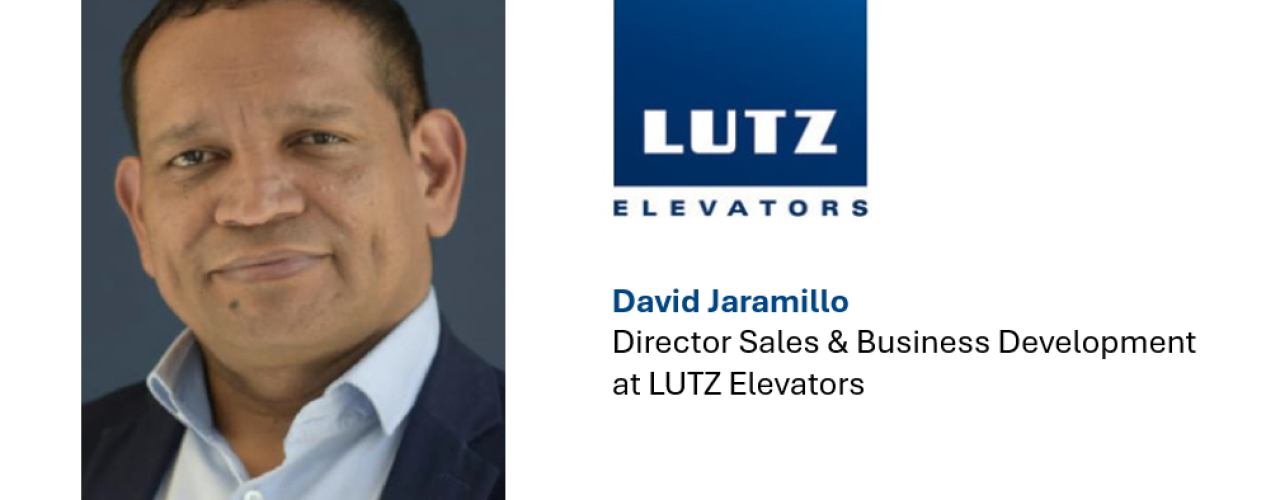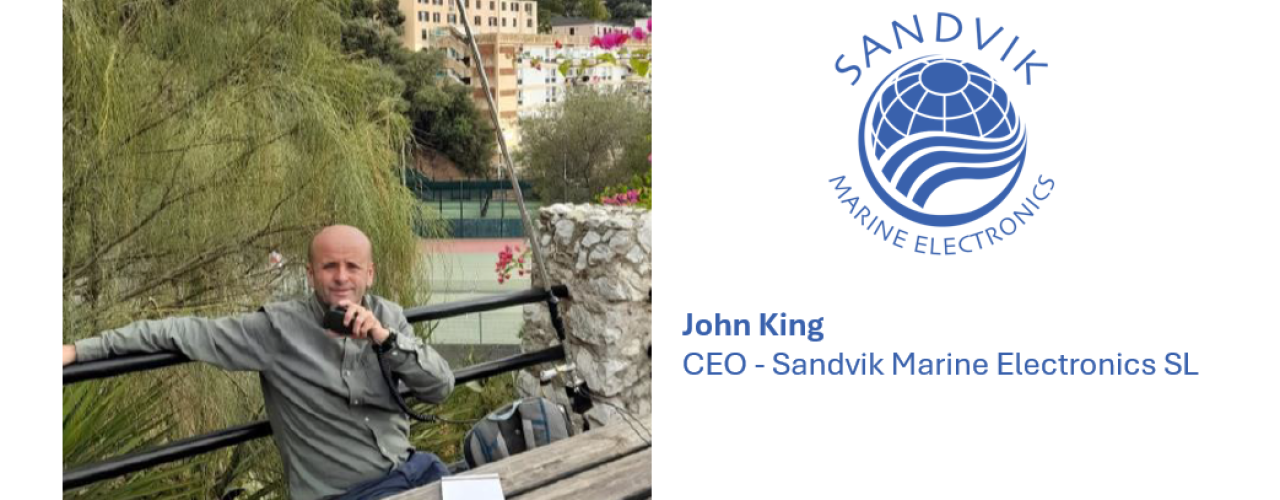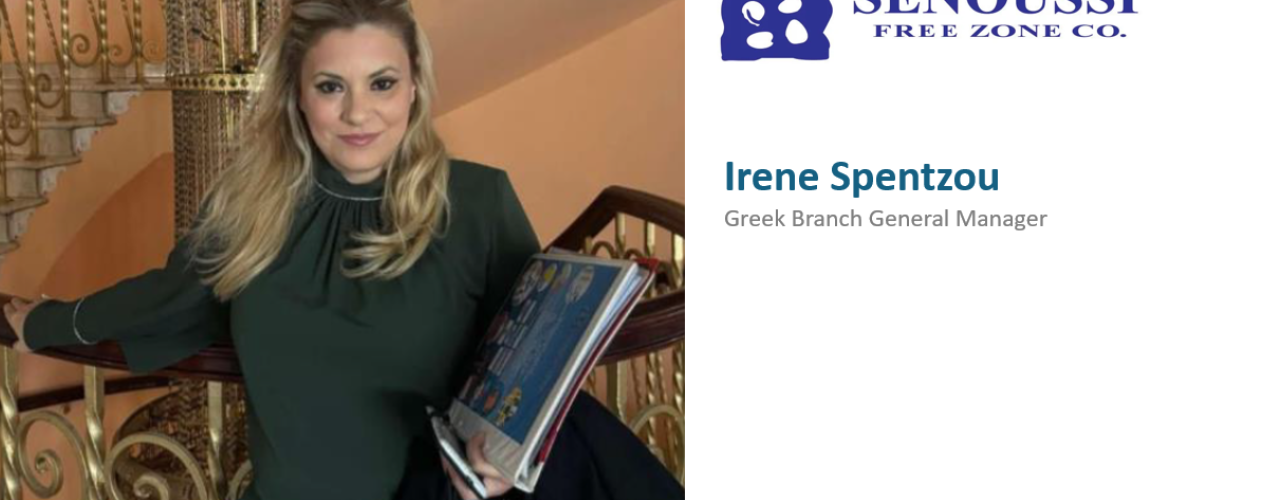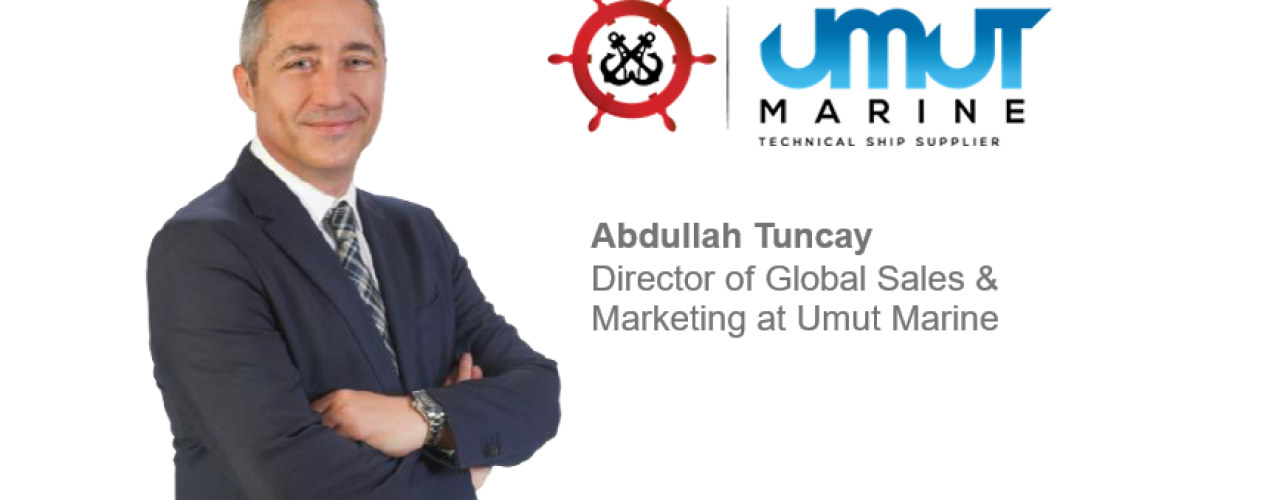Discussion with David Jaramillo, Director Sales & Business Development - Marine Elevators Services, LUTZ Elevators
How did your journey in the maritime industry begin?
My passion for ships started early. I grew up in Cartagena, Colombia, a port city, and when I was child, I always dreamed of becoming a naval architect. That led me to Germany 40 years ago, where I studied naval architecture in Hamburg on a scholarship. After graduating, I was lucky to join Germanischer Lloyd (GL), the former German classification society, I spent 17 years in different challenging positions, learning everything about marine classification, IMO regulations, and how international requirements work across flag states and class societies. Later, while finishing my MBA, I was recruited by RUD Ketten, a company looking to enter the maritime and offshore market. I spent 7 years there leading global business development. That role taught me how to build strategies that are focused on customer and market needs and grow internationally. It also meant a lot of travel which has remained a part of my career ever since. In 2020, like many others, my role was impacted by the pandemic. Since it required international travel, we had to part ways. Fortunately, I found my next opportunity quickly. I joined LUTZ Elevators in March 2021 to lead business development and sales, with a focus on expanding our maritime, offshore, superyacht, and defense business worldwide.
You’ve mentioned international work, how do you manage frequent travel and work–life balance?
Before the pandemic, I traveled even more. Now, I’ve found a better balance. Since 2022, I’ve been managing our subsidiary in Panama, and I’m preparing a local colleague to take over that responsibility. So my travel is now more focused and efficient. The pandemic showed us that a lot can be done virtually. Of course, in-person meetings, especially with clients, are still essential, but we’ve learned to combine digital and physical interaction better.
I still travel across Europe, meet clients in places like Cyprus, and attend major exhibitions in Norway, the UK, and Brazil. My children are older now, so it’s easier to manage. I’d say I’ve found a good rhythm between business and personal life.
What has changed the most in the maritime industry that still impresses you today?
The shift toward digitalization and innovation has been remarkable. For many years, the maritime industry was conservative, very reluctant to change. I remember when even suggesting innovation was met with hesitation. But today’s decision-makers are from a new generation. They’re more open, more tech-savvy, and willing to explore an embrace change. That’s accelerated transformation, especially in areas like sustainability, emissions reduction, and waste management. A personal example: when I started in classification, all vessel plan approvals were done on paper. Huge drawings, physical files, big tables. I actually figured out concretely in 2005 how this process could go fully digital, and now, that vision is reality. Watching that evolution happen has been truly impressive.
Can you tell us how LUTZ Elevators delivers value in a changing maritime industry?
LUTZ Elevators is a German company founded in 1927. The company originally focused on land-based elevators but entered the maritime sector in the 1960s when container vessels began growing taller and needed onboard elevators for crew movement. Of course, elevators already existed on passenger vessels. Did you watch the movie Titanic? Just think of the Titanic in 1912. Decades later the demand for onboard elevators for freight vessels created an opportunity, and LUTZ stepped in.
Today, we serve several key sectors: superyachts, with custom luxury installations, offshore platforms, where compliance is critical and naval vessels, for which technical and documentation requirements are quite demanding. LUTZ is the only elevator company in Germany certified to meet NATO documentation requirements. In the commercial shipping segment, our elevators are installed on over 2,000 vessels, mostly container ships, but also bulk carriers, tankers, car carriers, and cruise vessels.
How do you use technology & data to stay ahead?
In this industry, outdated data can lead to missed opportunities or the wrong outreach. We rely on accurate, dynamic data to make better decisions, prioritize outreach, and serve the right vessels at the right time. What sets us apart is that we’ve evolved beyond hardware, we deliver data-driven service. We use real-time fleet data to track changes in ownership, vessel names, or crew contacts. That helps us stay relevant and responsive. When we know which ports a customer’s fleet regularly visits, we can say, “Here’s how we can help you there.” That level of preparedness builds trust.
We use MagicPort alerts to keep an eye when vessels will be at ports where we have local teams. That gives us time to prepare and reach out as needed. I really value responsiveness of MagicPort team. When we request a feature or insight we quickly get a working solution, that kind of support makes a big difference.



